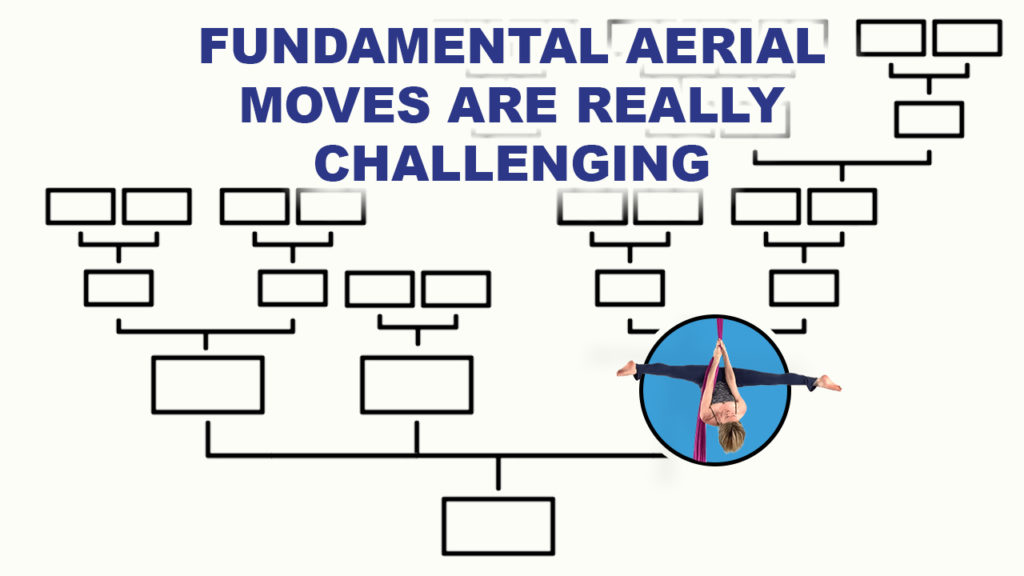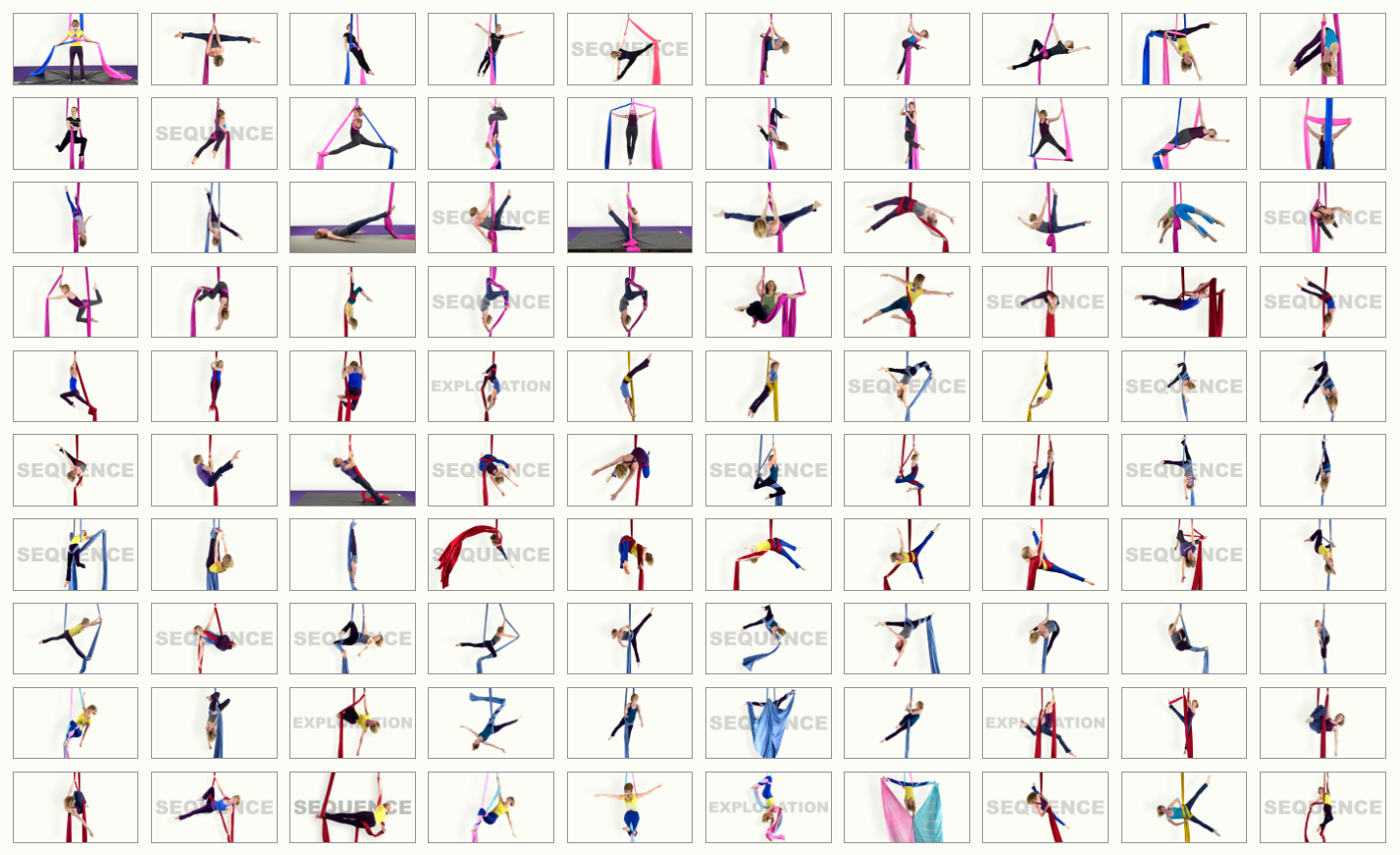
One difficult truth of aerial: many of the fundamental moves are actually very challenging!
For example, a straddle up! This leads to so many really cool skills including not only drops but also so many different wraps and poses. But, it is also so challenging to achieve, especially in a way that’s healthy long-term on the body.
People with a rock climbing or gymnastics background (or a certain strength to weight ratio) might achieve a straddle up quickly. But many adults without that background or with different body proportions can take much longer to become comfortable with this skill.
So, as an instructor, you’ll need to put a lot of thought into
We do that in many ways but one thing we do is we hide conditioning inside fun aerial skills. Coaching skills in a way that progresses aerialists from ground zero to where they want to go is a skill that can be learned and when we teach any skill we’re always thinking about the body mechanics and apparatus theory that make it successful so that anyone can have success in aerial.
On a simple level, a straddle up is a combination of deep core strength and control, a pull up action, and a straddle.
A tuck inversion is easier than a straddle inversion, but it also involves the same pulling up and deep core work, so it’s one easier and important building block for a straddle up.
A straddle back (supported) is an easier way to experience an inverted straddle.
We know that a pulling up action is important for a straddle up, so that means working on skills that train pull ups will help. Some examples are basic climbs, footlock skills that use the arms to pull up, skills in the knot that use the arms to pull up, etc.
Of course we could and do also train pull ups as a conditioning drill, but the bulk of our pull up work is actually hidden inside fun aerial skills like the ones listed below! There are so many ways to hide conditioning and keep things fun, it’s what many students come to aerial for.
We also know that deep core engagement and strength is so important. So in all of the skills that we teach at beginner level we’ll focus on properly engaging and using the core. Sliding skills like these into the warm-up and conditioning section of class builds lots of core awareness and strength over time.
And we know that a strong wide straddle makes straddle ups easier and more efficient, so that’s something we’ll build into our warm-ups, cooldowns, and skill building as well.
This is the fun part! We’re always adding moves to our curriculum because the possibilities are truly endless. Hiding conditioning inside fun skills is such a rewarding part of teaching and developing curriculum.

We’re using Straddle Up as an example but we use this same process to approach every challenging skill at any level in our curriculum!
Every body is different and a move that’s easy for one body might be impossible or next to impossible for another. So breaking down the skills in a fun and inspiring way is at the heart of teaching.
In the next post we’ll talk about how to handle roadblocks, when a student wants to progress but is having trouble with a move that’s necessary.
In the meantime, we’re here to help! You can always schedule a chat with us during our regular office hours.
And, for access to hundreds of video lessons any time, sign up for Aerial Fit Online.
